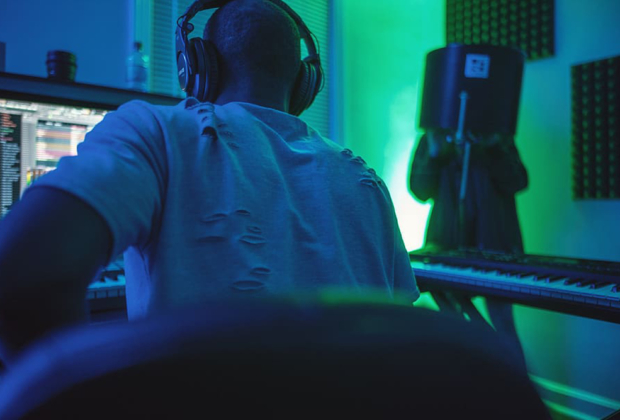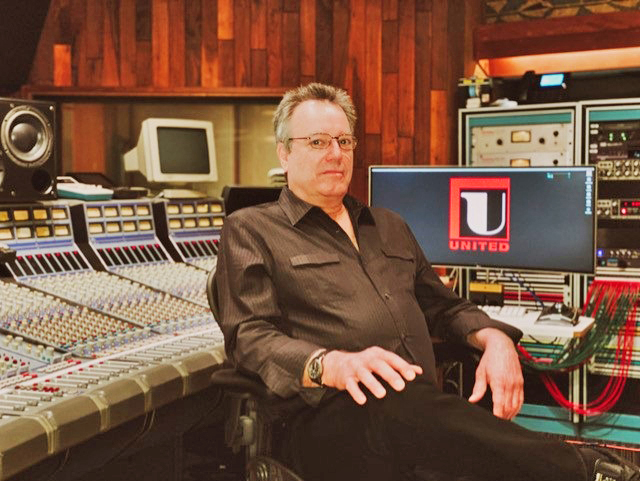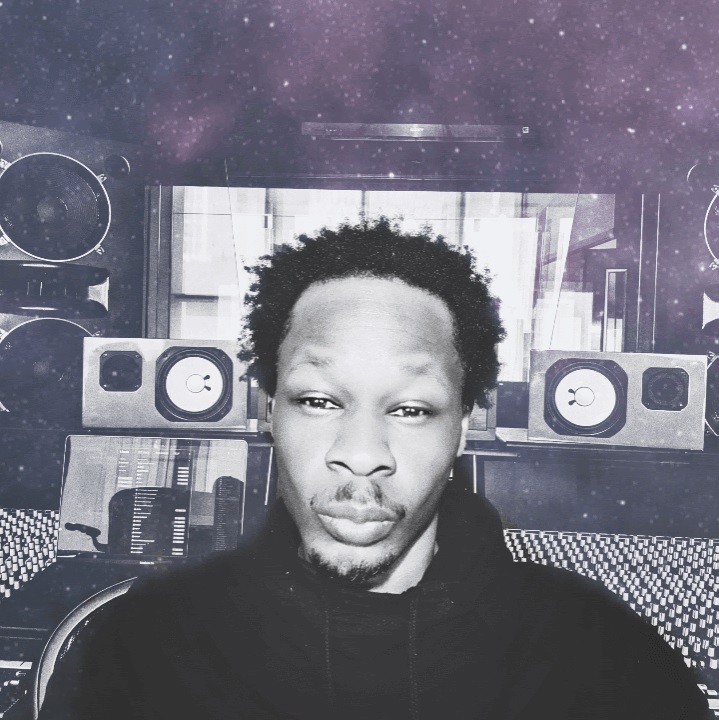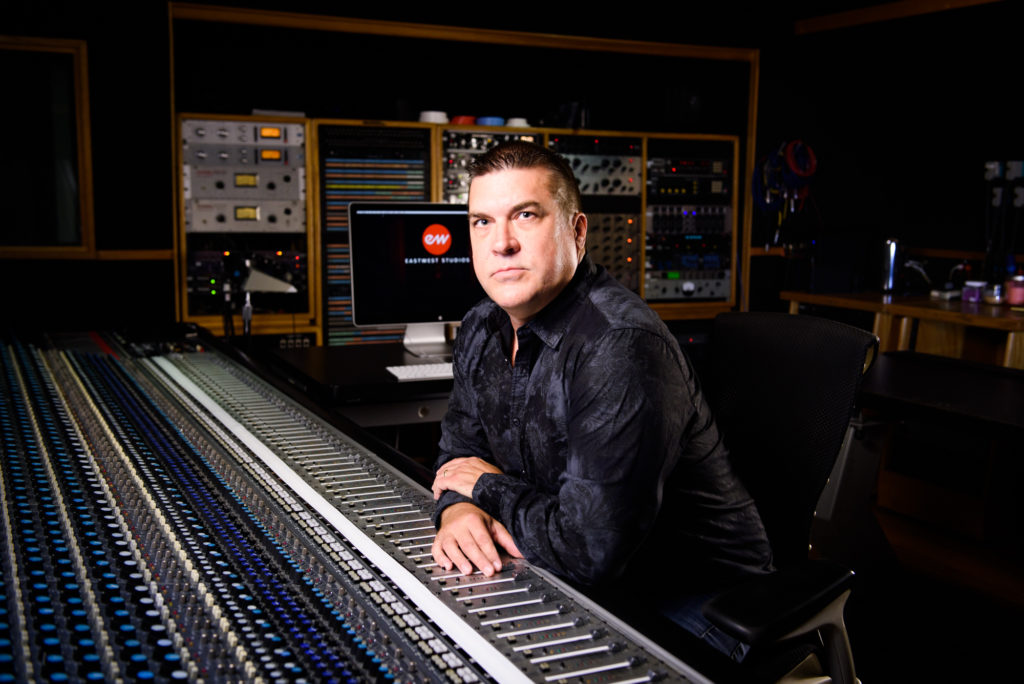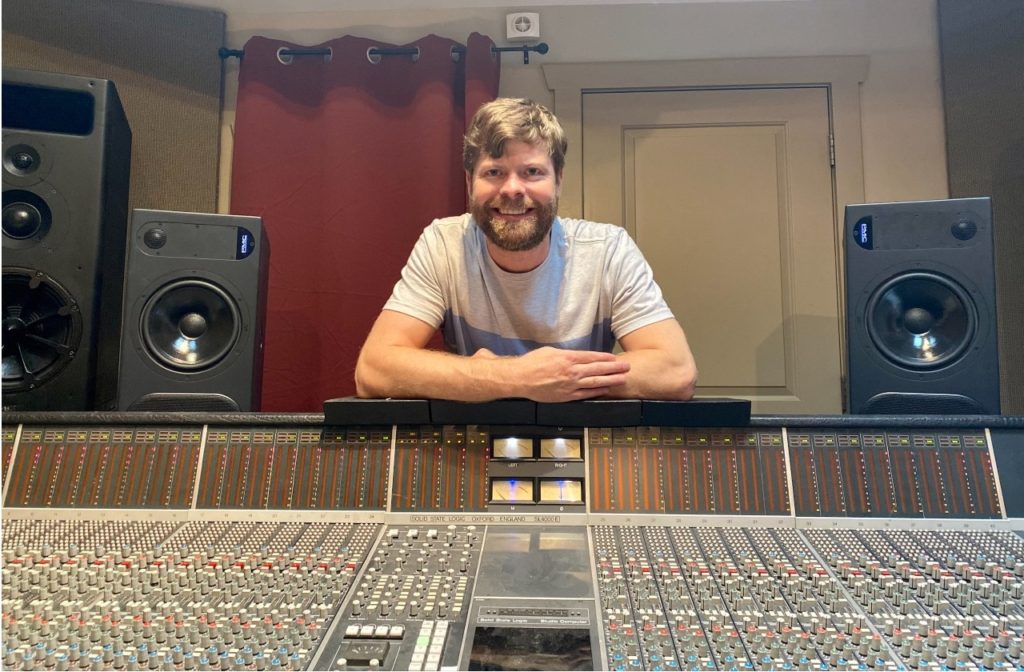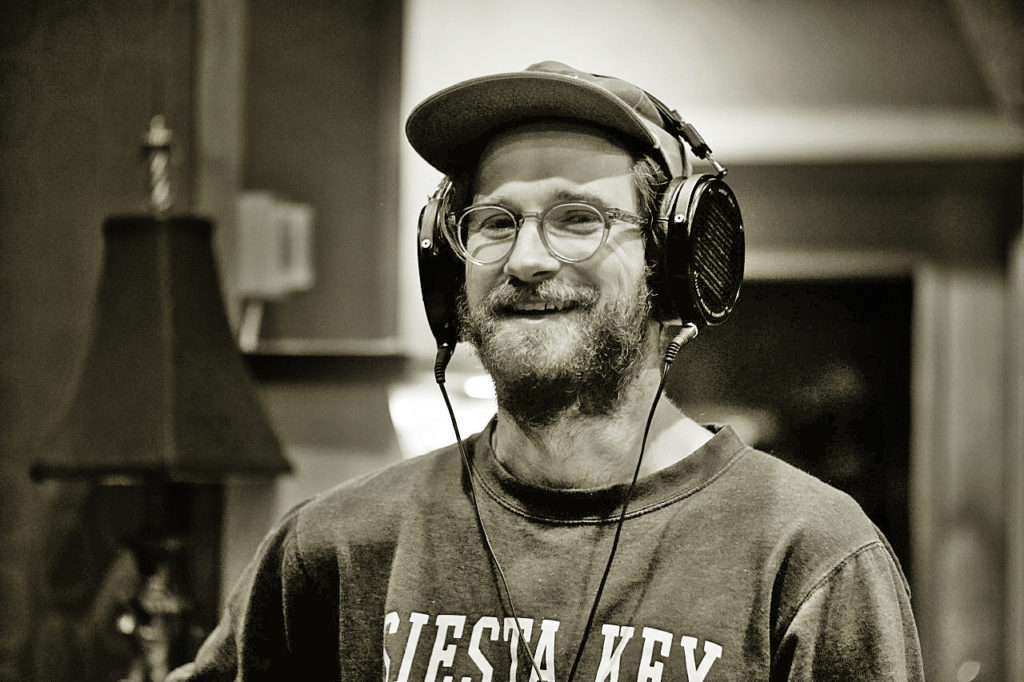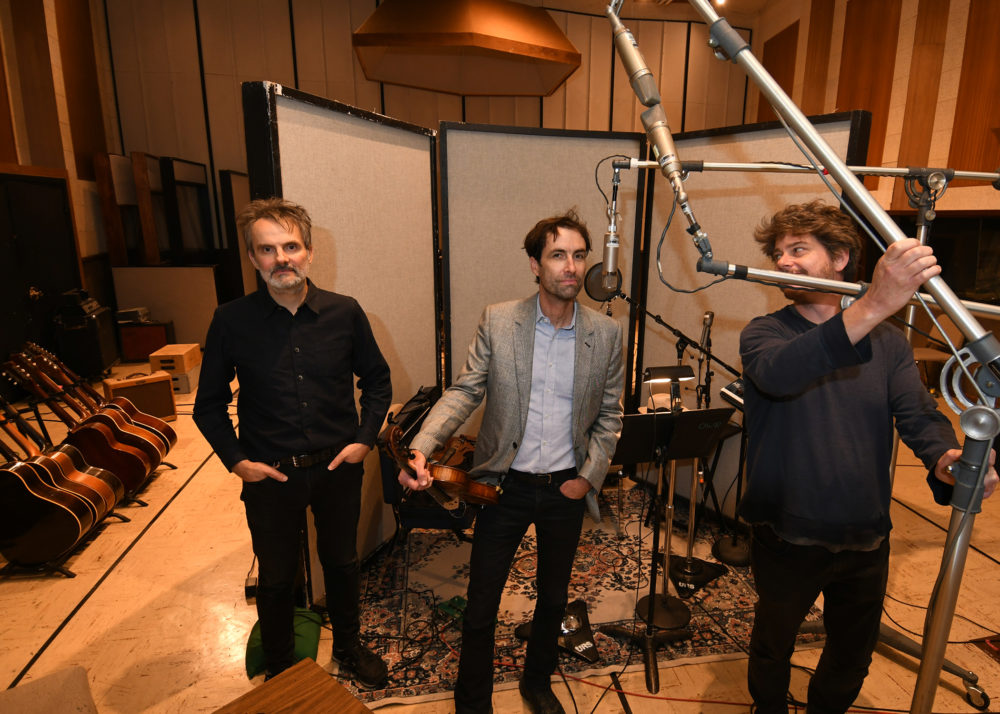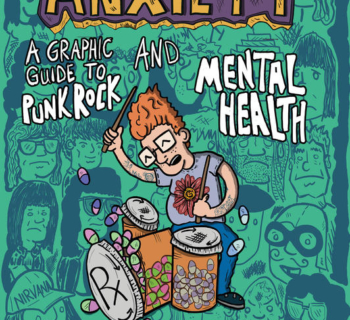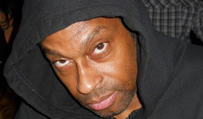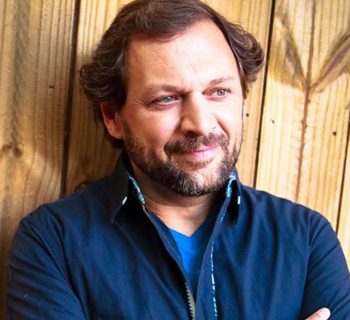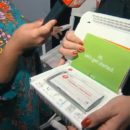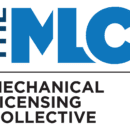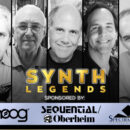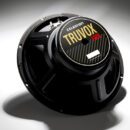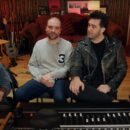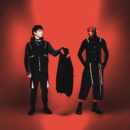The most respected recording studios on the planet all have this in common:
A studio technician whose job it is to ensure the facility’s equipment is ready to perform 100 percent perfectly at all times. And if a glitch should raise its ugly little head, if a client’s session is interrupted by a sudden malfunction, it’s the studio technician who comes to the rescue. Considering their importance to the recording process, Music Connection decided to interview the following individuals.
Mike Guerra
Studio: United Recording, Los Angeles
Contact: unitedrecordingstudios.com
Guerra hopped aboard the audio engineer express during high school because he realized that music held the key to his future. But his parents held the keys to their house and had different ideas. So after nearly ten years in studios, he enrolled in college, earned his degree in electronics technology and engineering and went on to engineer on a number of notable records. A decade later he segued into a studio tech position and has now spent more than thirty years working at such storied spaces as Conway Recording, Capitol Studios and United Recording, his current home.
What are some of your biggest challenges?
The age of some of the equipment and that several of the manufacturers are no longer around. If audio companies aren’t making equipment that calls for certain parts, there’s no reason for a manufacturer to make them. It’s become tricky, especially in the last ten years. All of our consoles are well past their design life. Back in the day, studio owners used to buy a new console every three or four years because they wanted to keep up with the technology. That all changed when the digital disruptor of computer recording came around.
What’s a typical day like for you?
I often have to find vendors that will put together parts in suspension to recreate an assembly that can be used to retrofit something that hasn’t been available for more than thirty years. Sometimes I have to modify part shapes because they’re not in the correct form factor; they may not fit correctly. But you can’t change the design because you’ll change the behavior of the circuit. Then I take care of trouble reports and repairs around the building as well as special projects.
Are you on call twenty-four-seven?
Technically, yes. I have had to come in at four in the morning or on a day off but it doesn’t happen often.
How much of a say do you have when a studio decides to buy new gear? For example, when a new recording console is being considered?
They usually use me as a consultant to cover aspects like how supportable or field-serviceable equipment is. These are important issues because they have a lot to do with how much down-time there may be or how long you can keep a piece of equipment in service. Third-party gear often doesn’t have a support system. My function is to weed-out and advise about any possible trouble.
Do you have any preference with respect to vintage gear versus modern? That is, was vintage equipment made to last more so than modern? Is the vintage stuff easier to service?
With gear from half a century ago, there was much less planned obsolescence going on. A lot of stuff coming out now isn’t user-friendly. They don’t release schematics to customers and a good amount of it is surface-mount, which a lot of places aren’t capable of dealing with.
If someone who’s building their own studio – a home studio, for example – asks for recommendations, is there any manufacturer that you always suggest?
Not really. Musicians are almost like painters. They pick their box of paints and their preferred brush and canvas. I don’t like to eliminate any color in the box. I want them all.
How large is the studio tech community? Is it easy for you to know techs around the country?
There are online forums, which is a good way to keep in touch with people and trends; of learning which parts are going obsolete, so you stock up on them. We’re starting to see equipment fail in ways we’ve never seen before because gear has never been this old before. There are so few new items coming around and a lot of research and development is going into software. Our role has changed from what it was in the seventies, eighties and nineties. You spend more time tackling unique problems.
What’s one of your favorite studio stories or anecdotes?
While I was at Criteria in Miami around 1979, I was assigned to work on a Crosby, Stills and Nash record, David Crosby had shown up first. While we waited for the other guys, he started to monkey around on the piano and played some of his new songs. I recognized them and went out and sang the harmonies. He was surprised that I knew them so well. Later we got into a very competitive pinball match in the lobby.
What are the three most important lessons you’ve learned in this job?
- When you’re called down to the studio, you’re probably the one that has the best chance of keeping the room on an even keel. Engineers used to tell me that this job was ninety percent psychology and ten percent knowledge.
- When a problem seems to be getting away from you, remember your formal training, knowledge base and skill sets. Don’t panic. Work the problem and you’ll get through it.
- Be kind.
What does the future hold for major studios and/or recording gear?
Studios like United, EastWest and Sunset Sound – we’ve all found our niches with certain clientele, just because of the ways the rooms are. They have their own unique character and people know this. We fill a special spot, which is becoming increasingly difficult to find.
Kez Khou
Studio: Jungle City Studios, N.Y.C.
Contact: junglecitystudios.com, kez.ninja
Kez Khou studied engineering at Arizona’s Conservatory of Recording Arts and Sciences and then worked at a handful of small NYC studios. His first major exposure was as an assistant engineer at Alicia Keys’ Oven Studios. Studio techs there began to show him things and before he realized it, he’d acquired another craft. He's served honorably with Jungle City for eighteen years, been tapped to provide a range of services on the road and has worked with such greats as Keys, Kanye West and Madonna. Jungle City was co-founded by Grammy-winning recording engineer Ann Mincieli along with Keys.
What are some of your biggest challenges?
It’s always the most legendary artists or producers who have the more outrageous requests. There was someone who used to come in who demanded a system that was completely free of the internet. This was around 2010 when a lot of people were getting hacked. That’s not a huge ask, but depending upon the gear that you have, after 2010 everything became heavily integrated with the network. If that request was made now, it would be almost impossible to accommodate because a lot of the software and even iLocks require an online connection.
What’s a typical day like for you?
I facilitate eccentric setups. I’ll sync video with Pro Tools and a bunch of external input devices and capture cards, for example. I don’t know if all studios are integrating video systems into their setup but at Jungle requests for it are common, even for just vocal sessions. Recording sessions become opportunities to shoot B-roll for social media.
Are you on call twenty-four-seven?
Not technically. But in reality, yes. I could get a call for something at two o’clock in the morning. It depends on the session. It’s once in a blue moon now. The time I’ll expect a call is when technology changes, hardware or software-wise, and things aren’t as stable as they once were. When there’s a major overhaul to one of our rooms, things might not work as they should.
How much of a say do you have when a studio decides to buy new gear?
I absolutely have a say. In fact, we’re about to swap out our old Euphonix System 5 and put in a 24-channel Duality. The studio owner will ask me about technical requirements for the room, what’s the best option for the clients and so forth.
Are there times when your job is stressful because a piece of gear fails and all eyes are on you? If so, how do you handle that?
That definitely happens. Fortunately, I’d normally have a backup of whatever gear that could fail, potentially. For example, I have backups for any of our interfaces like our [Tube-Tech] CL 1B and our vintage Neves. I know that I’m spoiled because a lot of studios don’t have the gear or backups that we do.
When artists or outside engineers bring in their own gear, is that something you’ll touch or is other people’s gear hands-off for you?
It depends on the client. Some are super possessive and will only allow themselves or their crew to handle it. Others will have it sent to the studio and expect it to be setup by the time they arrive. Long-term clients know that outside of the many things I do at the studio, I can help with whatever gear they’re having trouble with. For example, Meek Mill's engineer [Anthony] Cruz is a friend of mine. He had a Neve power supply that was giving him issues. I gave it a Band-Aid and he was able to finish the session.
Do you have any preference with respect to vintage gear versus modern?
I feel like there’s been a paradigm shift. Growing up, things were made to last. Now it feels like they’re built to expire. As to servicing, it depends on the piece of gear. Thirty-year-old parts are hard to come by, especially post-COVID. If it’s not hard to get, there’s going to be a wait. For example, the SSL we’re going to install: I ordered six parts in November of 2021. I just received them in April.
If someone who’s building their own studio asks for recommendations, is there any manufacturer that you always suggest?
It depends on the component, the budget and their competency. The common vocal chain these days is a Neve going through a Tube-Tech or an Avalon. If it’s not a serious facility, I’ll recommend whatever Apollo is compatible with their computer. If they’re a real engineer, I’ll recommend an interface that doesn’t have a PAD [passive attenuation device] and preamp before whatever outboard gear they’re going to use.
How large is the studio tech community?
I probably only know techs on the East Coast; maybe a few in L.A. I work from out here so it’s more local.
What’s one of your favorite studio stories or anecdotes?
It was a Jay-Z session. There was something happening in the room, but I fixed it. He said “I don’t know that guy. But I like you.” That’s definitely a moment I’ll never forget. There have also been many cool moments with Alicia.
What are the three most important lessons you’ve learned in this job?
- There are unwritten rules of working at a professional studio; there are things you don’t learn in school, such as how to read the energy in the room.
- Test your setup thoroughly.
- Preventative maintenance. Get to know what has a possibility of failure and what is most likely to fail.
What does the future hold for major studios and/or recording gear?
There will be spaces like EastWest and Jungle to cater to a specific clientele. But because of technology, setups are going to be scaled down. The only reason people need a huge setup these days is if you want to mix on [Dolby] Atmos. For that you need specific space requirements.
Lawrence Ethan Malchose
Studio: EastWest Studios, Los Angeles
Contact: eastweststudios.com
Angeleno Lawrence Ethan Malchose took his first steps towards studio tech bliss as a young musician. He bought a four-track recorder and soon realized that if he hoped to learn more, he’d need to connect with some pros. So, he pulled out a local studio directory, cold-called several places and eventually struck gold when he spoke with Music Grinder Studios, who’d just lost its tech fifteen minutes earlier. He’s since engineered for many bands and done tech work at legendary spaces such as Sunset Sound, Conway and The Village. He joined EastWest in 2013 and continues to create music.
What are some of your biggest challenges?
First and foremost is staffing. Getting together a group of like-minded individuals – people who are as driven as I am – is difficult. My simple requirement is that they be people who’d rather be nowhere other than the studio. Because that’s how I was. I would have worked for free and did. I want everyone who works with me to have a sense of ownership and pride.
Are you on call twenty-four-seven?
Yes. But I rarely go in at weird hours. It’s my goal to set things up so that I don’t have to.
How much of a say do you have when a studio decides to buy new gear?
They always ask me for my thoughts. Even if they didn’t, I’m stubborn and would insinuate myself into that decision.
Are there times when your job is stressful because a piece of gear fails and all eyes are on you?
Yes, but I have to be the calmest person in the room. I learned that as an assistant. Even if I’m anxious, I can’t show it. The client needs to know that they’re in good hands and that things are taken care of. I’m getting older, have seen a few battles and it takes a lot to rattle me. I can count on one hand the number of times I’ve had to tell a client that the tape machine was toast and I wouldn’t be able to fix it until the next day. There aren’t many things that will be a session-killer. Ninety percent of it is “Oh, you forgot to press this button.”
When artists or outside engineers bring in their own gear, is that something you’ll touch or is other people’s gear hands-off for you?
I consider that a perk of coming into work at EastWest. If a client brings in gear and it’s busted, I’ll take a look. I also fix gear on the side. I get a lot of business from the people I’ve helped at the studio.
Do you have any preference with respect to vintage gear versus modern?
Yes. Vintage gear is more robust than modern and it’s infinitely more serviceable. Neves, for example: everything’s discrete technology. If there’s a bad transistor, you replace a $2.50 part. Fortunately, you can still buy a lot of this stuff, which means that you can repair just about anything. But the only things that break are the switches and contacts: all day long. Since a lot of vintage gear is being reissued, I can get parts.
If someone who’s building their own studio asks for recommendations, is there any manufacturer that you always suggest?
No. Most people who build home studios buy the same things. If they can afford it, they’ll get a Burl interface. Otherwise, they’ll get Avid or a Mac with Pro Tools. If the artist is more of a songwriter, they’ll go with Ableton. If someone’s going to put in a console, that’s a difficult question to answer. ORIGIN is a good new option. The API stuff is the same that they’ve made forever: API 1608s and the simple small desks. If you get to the point that you’re going to record drums, then you’ll need two good preamps and a couple of compressors.
How large is the studio tech community?
It’s pretty small. Many studios don’t even have a tech on staff. There aren’t a lot of people at this level. Many of them have retired. If I do get in touch with someone I don’t know, we’re very supportive of each other. Mike Guerra is right next door at United. If he needs something, I’ve got his back and he’s certainly got mine. If I’m out of town and something fails, he’ll run over. There’s a lot of camaraderie in the tech community. It’s a small club and it’s getting smaller.
What’s one of your favorite studio stories or anecdotes?
I used to wear Gap clothes. One day [Chicago band] Enuff Z'Nuff was in doing a photo shoot for their [1991] record Strength. They were wearing spandex and those netted shirts. Donnie [Vie] wanted something a little more straightforward so he borrowed my clothes. I walked around the studio for the rest of the day in skin-tight spandex and a netted shirt.
What are the three most important lessons you’ve learned in this job?
- Genuine passion and caring will carry you through it all.
- Always be calm.
- No particular piece of the puzzle is more important than any other. Great music takes everything: the small bits and the big ones put together in the right way.
What does the future hold for major studios and/or recording gear?
I don’t see any end in sight. We’ve been through at least three end-of-the-music-business scares. The thing about the high echelon studios like EastWest is that there’s always a new generation which discovers that the only way to get an amazing drum sound is to go into an amazing room with stellar gear. You can’t track five violins and six cellos in a garage and expect it to sound like “Star Wars.” There will never be a substitute for that and I’ll do everything in my power to make sure that these rooms aren’t sucked up by someone who wants to put up condos.
Ed Evans
Studio: The Hideout Recording Studio, Las Vegas
Contact: hideoutlv.com
In the infancy of his career, Ed Evans was in a band signed to Roulette Records. But he also had experience as a recording engineer, a degree in electronic engineering and a hands-on background with gear manufacturer API. He found that he was happiest and most successful when he drew on these skills, and it also placed him in high demand by other recording engineers. This all dovetailed perfectly, and he landed a tech gig, which led him to rooms such as The Hit Factory and Power Station. He now works largely on a consultancy basis with The Hideout and other studios.
What are some of your biggest challenges?
The technical aspect, of course, is getting parts, tubes in particular. Many are generic but some have become obsolete. Then there’s the reluctance of manufacturers to provide support. They don’t want [consumers] to work on their gear. They want us to send it back to them. They usually want to replace something rather than fix it. We don’t get schematics anymore. Even with the simplest gear, it’s a pain to get information so you find workarounds; someone who knows someone who can get a schematic.
What’s a typical day like for you?
It depends on where I work. I may be putting someone’s studio together or troubleshooting something somewhere else. I’m semi-retired and don’t do the twenty-hour days anymore. Much of my time is spent at The Hideout because most of my test gear is there. I have an arrangement with them that allows me to fix other studios’ gear on the bench. Since I’m there, I can also answer questions for them.
Are you on call twenty-four-seven?
I would if it were necessary, but it really isn’t these days. Recording engineers know how to fend for themselves within their purview. I’ve gotten very few calls where I’m pulled in at three a.m. Although the studio is 24-7, most people there are adept enough to work around problems.
How much of a say do you have when a studio decides to buy new gear?
The Hideout has a strong leader in Kevin Churko who owns the place. He’s been in the business for years and knows his gear. I’ll get a question once in a while but it’s mostly his decision. Other people I work with often ask for my opinion. Some clients are savvier, some want a little more direction. It runs the gamut.
Are there times when your job is stressful because a piece of gear fails and all eyes are on you?
[When that happens] I tell them to shut up, get out of the room and let me work. But a lot of this stuff today can be worked around. God forbid your console goes down but you can still monitor the Pro Tools and continue working. Catastrophic failures don’t happen that often. Without a lack of trust, things are easier. I haven’t had a studio owner yell at me in years. My confidence shows and they let me do my job.
When artists or outside engineers bring in their own gear, is that something you’ll touch or is other people’s gear hands-off for you?
The outside gear question can be touchy. Generally speaking, whoever owns the studio will want [a piece of gear] fixed or at least operational so that the session can continue. Pretty much, I fix anything for a session. The question of whose responsibility it is will come afterwards. At the end of the day, it’s all about the session.
Do you have any preference with respect to vintage gear versus modern?
Vintage gear is way easier to service. Surface-mount is a different way of looking at things. The parts are way smaller. It takes tweezers and a magnifying glass to repair certain things. It’s a different set of headaches.
If someone who’s building their own studio asks for recommendations, is there any manufacturer that you always suggest?
No. I’ll find out what they’re trying to do and make suggestions based on that. More often than not, I’ll tell clients to use what they like but I’ll tell them about the problems I’ve seen with [their choices].
How large is the studio tech community?
It’s not easy for me to know techs from around the country. Back when I was in New York, there were about six guys that knew each other and we’d talk on a regular basis. Now I’m not familiar with the newer generation. I don’t know if they have the same depth as a lot of the older guys do because we had to work on a lot of different kinds of equipment. I mostly go back to the people who’ve been in business for years. It seems sparser and spread out.
What’s one of your favorite studio stories or anecdotes?
Paul McCartney was working at Power Station and I have a Polaroid of him somewhere holding my daughter at a few months old.
What are the three most important lessons you’ve learned in this job?
- Put yourself in the other person’s shoes. That will go a long way towards communicating.
- Don’t smoke a lot of dope on the job, no matter how much the engineer and client are. Your skillset requires concentration and smoking is the antithesis to that.
- Don’t burn bridges. Torch them slightly but don’t burn them.
What does the future hold for major studios and/or recording gear?
Too much today is based on the opinions of people who aren’t as seasoned. It’s more about the tools that work for you, whether it’s a hundred dollars, two thousand or ten thousand. Studios have been on the upswing for a few years. Hopefully more people will understand how they used to work and that translates into today’s operation.
Studio: East Iris Studios, Nashville
Contact: eastirisstudios.com
A self-taught tech, Heldt started his career as a studio intern at Dark Horse Recording and assisted on a number of sessions. He soon saw that the gold for him was in being able to maintain the gear. He began to take things apart in the studio shop and taught himself the craft. Six years later he moved on to House of Blues Studios, which was sold to UMG in 2018 and now operates under its present name. He and others like to joke that he came along as part of the deal.
What are some of your biggest challenges?
The job has become more about sourcing parts. We have consoles from the seventies, eighties and nineties – APIs, an SSL 4000 E/G+ computer and an SSL 9000 J. Switches and potentiometers go out and it’s about tracking down parts and to breathe new life into components that fail. The older ones are easier to find because they used parts that are more timeless. Finding out what’s wrong is only half that battle.
What’s a typical day like for you?
Mine’s atypical because I also do a lot of mixing. I’ll spend a few hours in the shop fixing things and ordering parts. I’ll go mix for a few hours and then I’ll go back to the shop. I keep things working and meet mix deadlines at the same time.
Are you on call twenty-four-seven?
Essentially, yes. But rarely do I get called out of bed to come into the studio. I do get the calls late at night although these days it’s more text messages. Often times I’m able to solve problems by asking the assistant to try certain things.
How much of a say do you have when a studio decides to buy new gear?
I have input but it’s a committee decision.
Are there times when your job is stressful because a piece of gear fails and all eyes are on you?
There are definitely times like that. Sometimes there are twenty people on the floor and suddenly each minute costs hundreds of dollars so I need to get things going. Earlier in my career it was harder to tune out the noise and solve the issue. Often, it’s about finding creative workarounds. You have to be able to think clearly when the pressure is on. A lot of that is a personality trait but you can improve on it.
When artists or outside engineers bring in their own gear, is that something you’ll touch or is other people’s gear hands-off for you?
I’ll take a look. I deem that a service to clients. But it’s not something I’ll take in and work on for a few weeks. I’ll spend maybe an hour or so and then give a report.
Do you have any preference with respect to vintage gear versus modern?
My preference is for vintage on multiple levels. A lot of that is the sound. I’m a big fan of transformers in audio paths because I like the character that they impart. With older gear it’s often hard to find replacement parts and with newer gear it’s not built to be maintained.
If someone who’s building their own studio asks for recommendations, is there any manufacturer that you always suggest?
That depends on several things. You may just need an audio interface or you may need a full-blown console with outboard gear. That could be a long answer.
How large is the studio tech community?
The community itself is large but I don’t have a ton of communication with guys at other studios. There are a lot of people out there with deep knowledge and it’s helpful to reach out to them. Sometimes they don’t want to share knowledge because they’re the only ones who can fix something.
What’s one of your favorite studio stories or anecdotes?
I spent a few months assisting with Tim McGraw. I was sitting in the back of the room one day when he came in and we started wrestling. It was two guys hanging out.
What are the three most important lessons you’ve learned in this job?
- Troubleshooting
- Attention to detail.
- Think outside of the box.
What does the future hold for major studios and/or recording gear?
There’s been a gravitation back towards major studios. I hope that people realize more and more that there’s something to be said for putting a full band in a room together and the results that you get from that. So much of the home studio [experience] is people [recording] separately.
Alex Burns
Studio: Chicago Recording Company, Chicago
Contact: chicagorecording.com
Burns came to work in tech as a matter of necessity. That is, he realized early on that if he could learn to repair gear, he could buy pieces cheaply. He started as many do: simply by trying everything and in the process he learned what worked and, perhaps more importantly, what didn’t. He went on to earn his degree in audio engineering from Nashville’s Belmont University and soon thereafter began to hang out with Bruce Breckenfeld who was already an established tech at Chicago Recording Company. Burns has been with CRC since 2016 and engineers there as well.
What are some of your biggest challenges?
In previous eras, regardless of the style of music you were working on, the demands on a studio were relatively similar. Now styles have such niche demands that a studio has to be different for each one. For example, pop, rap and hip-hop clients need an unbelievable amount of low end to come out of the speakers whereas jazz clients are more concerned with if the mains sound balanced. So, there are different demands and you have to balance the room to accommodate both.
What’s a typical day like for you?
I’ll check if there’s any gear that wasn’t working during a session or see if there’s anything that caused a session to come to a screeching halt. I’ve also got larger projects that I work on in the background. A lot of it is day-to-day maintenance.
Are you on call twenty-four-seven?
Yes. But if I answer [my phone], I start billing. I’d rather have a call and sort out [a problem] quickly than have a session stop and have to refund a client for a bunch of time. I only get pulled out of bed about twice a year. If we have a major label rap session coming in, I know that they’ll be listening really loud for a long time. The amps can then go into heat-protection mode and turn off. I have two setting for subwoofers, which covers about ninety percent of the sessions and the other one covers pop and rap where they’ll listen very loudly. They don’t want more SPL [sound pressure level]. They want more bass. I get that by turning up the bass a bit so they’re less inclined to turn it up all the way.
How much of a say do you have when a studio decides to buy new gear?
I have lots of input, especially since I also engineer. We try to buy things that will be used in every session and will make us money. We don’t buy a lot of new gear. We spend most of our money on maintaining our vintage pieces.
Are there times when your job is stressful because a piece of gear fails and all eyes are on you?
That’s happened many times. I handle it by understanding that there is a solution. Ninety percent of the time the problem is something standard. Recently our EQ system stopped working. It turned out that during an unracking/re-racking, someone accidentally unplugged it. When people are in sessions, there’s a lot of money on the line. Sometimes it’s hard to think clearly and methodically.
When artists or outside engineers bring in their own gear, is that something you’ll touch or is other people’s gear hands-off for you?
Sure. I work on vintage gear all of the time. It doesn’t scare me to touch or open it. I’m always gentle with other people’s stuff.
Do you have any preference with respect to vintage gear versus modern?
Vintage gear is easier to service but old switches are the weak spot. Many clients are used to digital [tools] and don’t have much tolerance for older gear. But modern gear has more reliability and a lower noise floor.
If someone who’s building their own studio asks for recommendations, is there any manufacturer that you always suggest?
AKG makes fantastic stuff and you can never go wrong with Sennheiser. All of their gear is modern, affordable and pretty bulletproof.
How large is the studio tech community?
It’s pretty small. There are a few techs I know in Chicago. Not a lot of people do it and the ones who did are retired or have passed on. It’s an older art.
What’s one of your favorite studio stories or anecdotes?
Chance the Rapper had a group called CocoRosie come in and they do everything on variable-speed tape machines. It’ a cool effect and very unique.
What are the three most important lessons you’ve learned in this job?
- Don’t talk down to people.
- Be methodical. Don’t chase your tail because you forgot something.
- The importance of being a constant learner; a lifelong student.
What does the future hold for major studios and/or recording gear?
There will always be a demand for large recording spaces that are professionally tuned. Engineers are less technically savvy than the previous generation so there’s something [to be said] for the expertise of a major studio and knowing how the whole system works.
# # #

